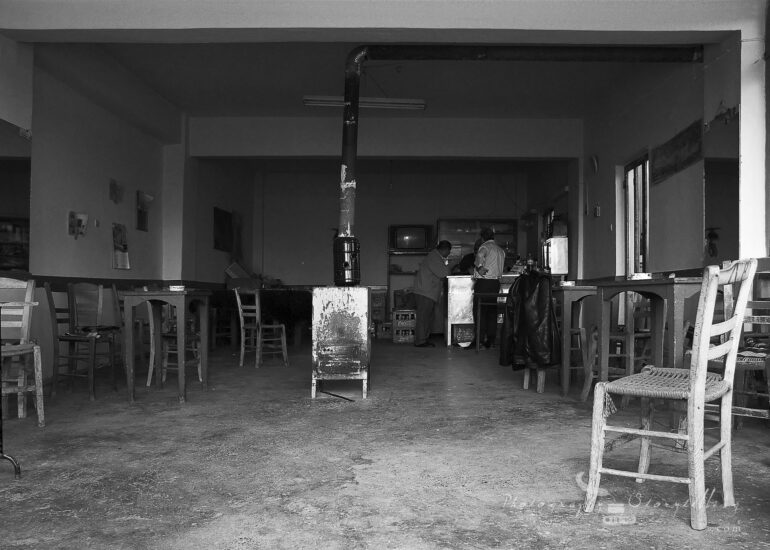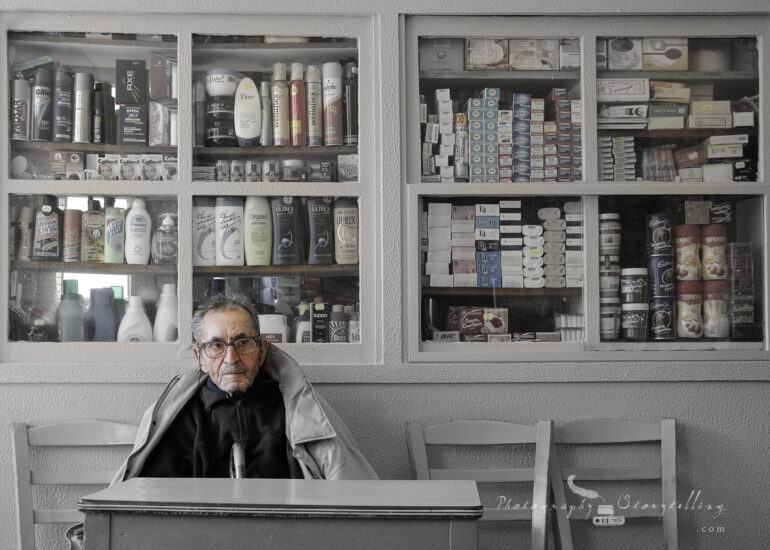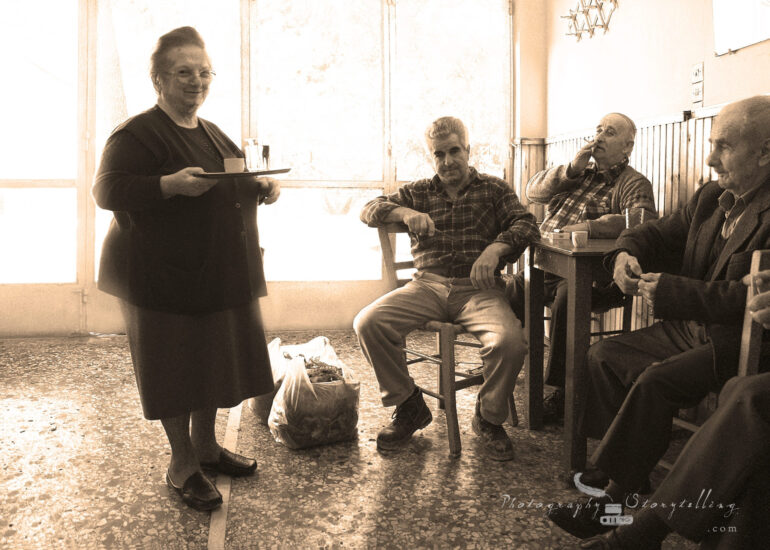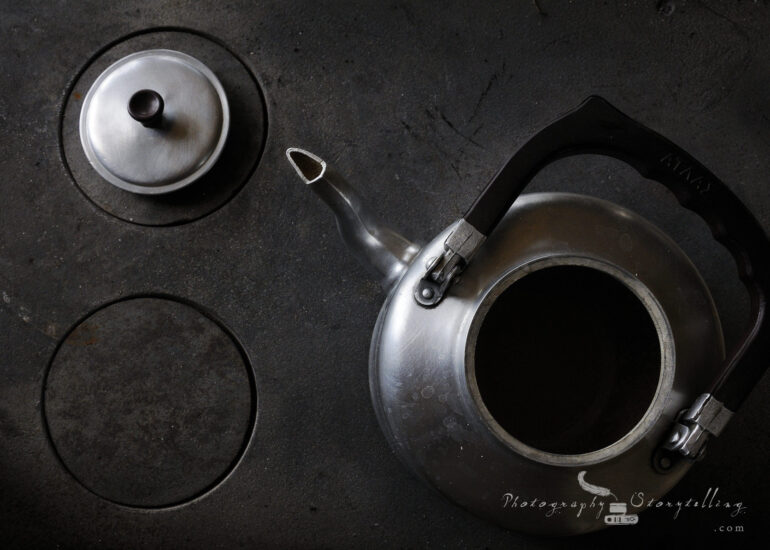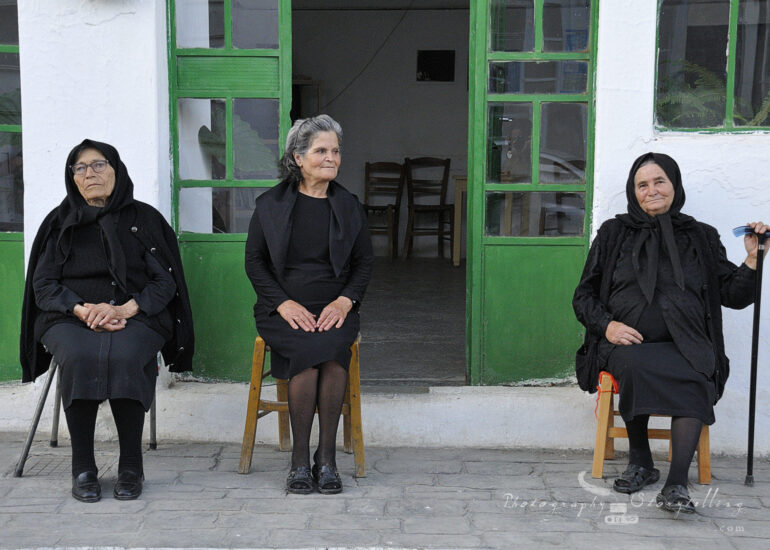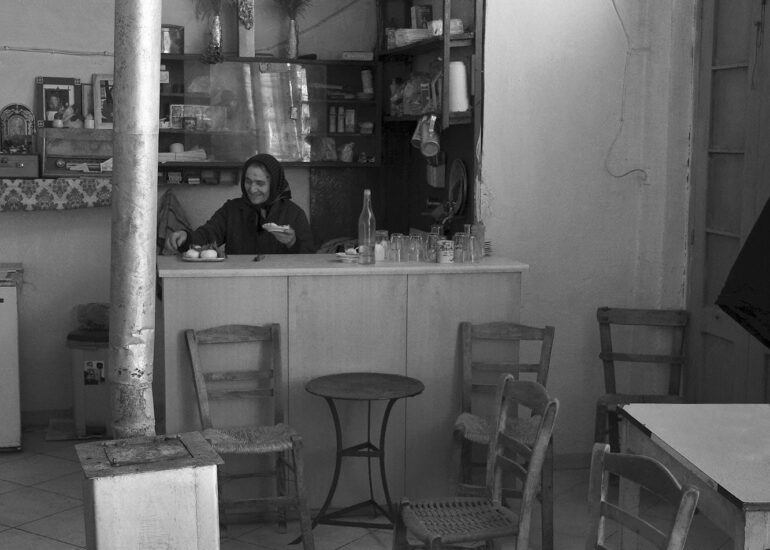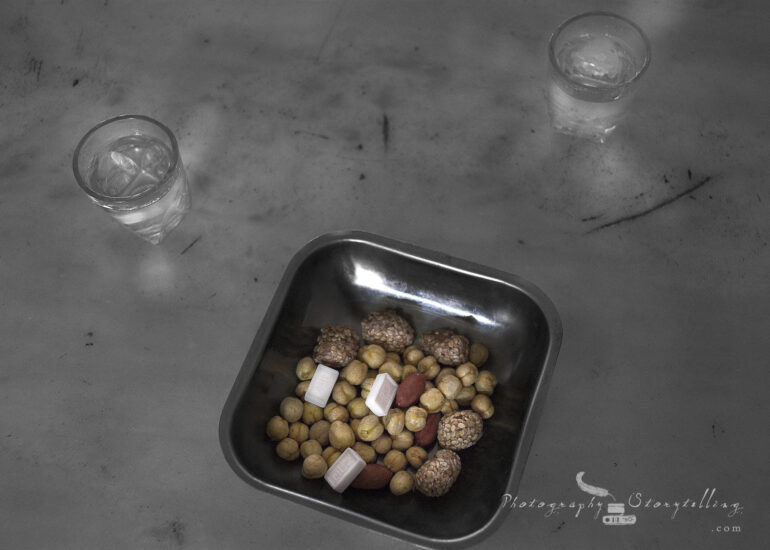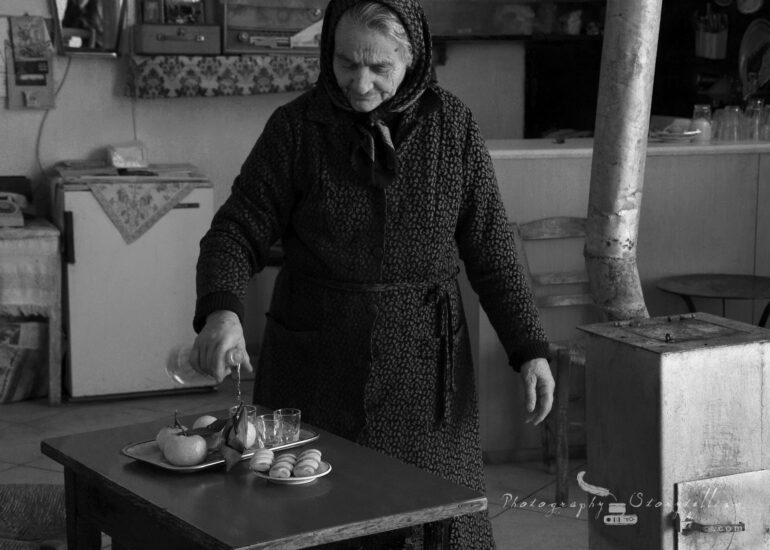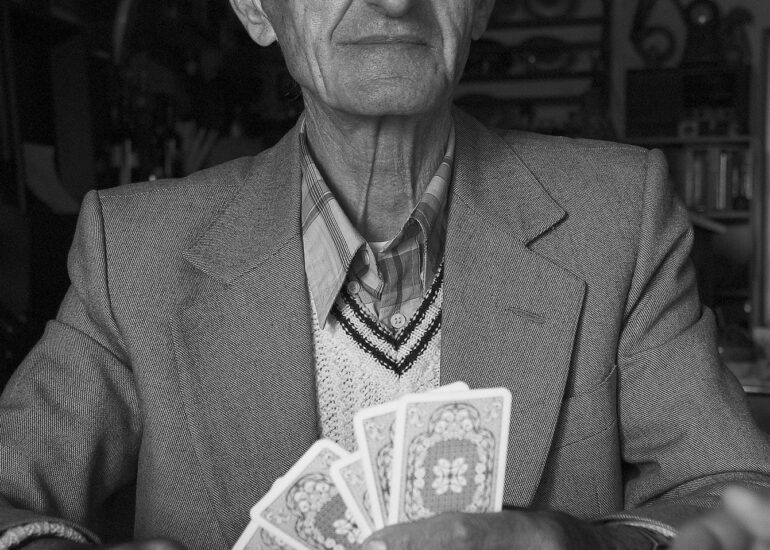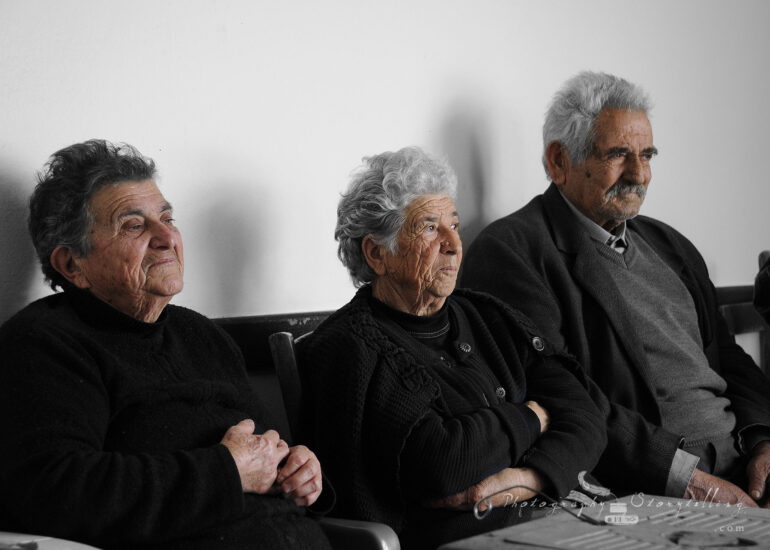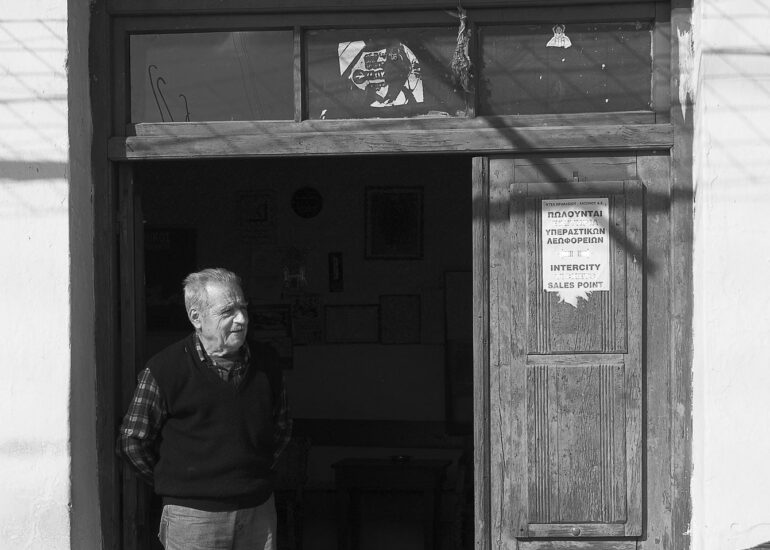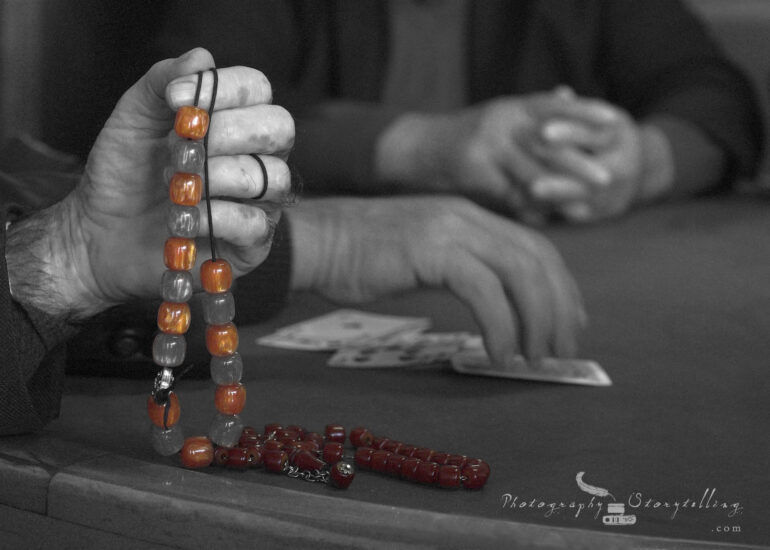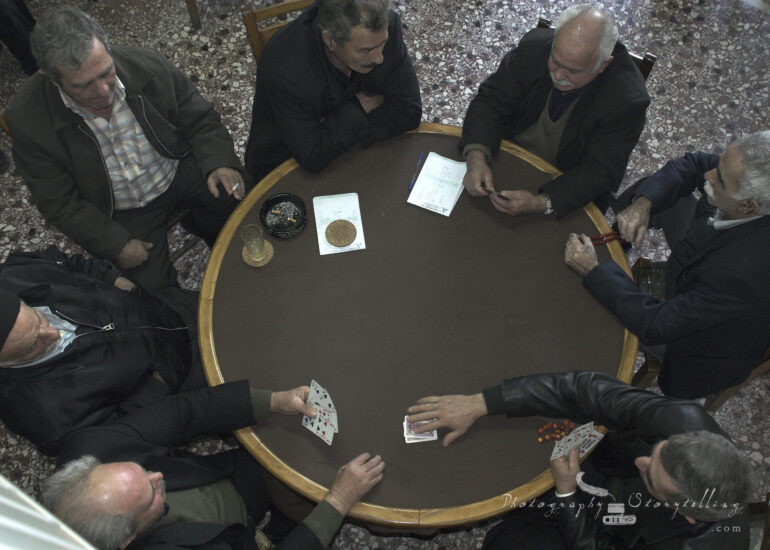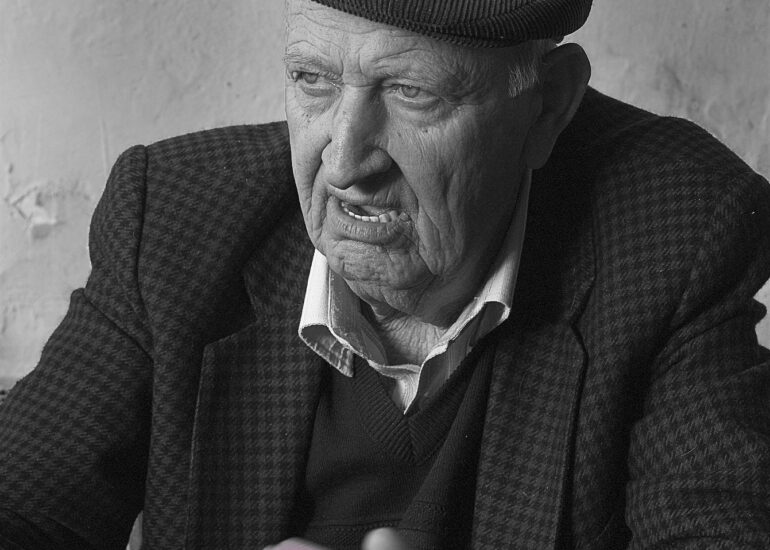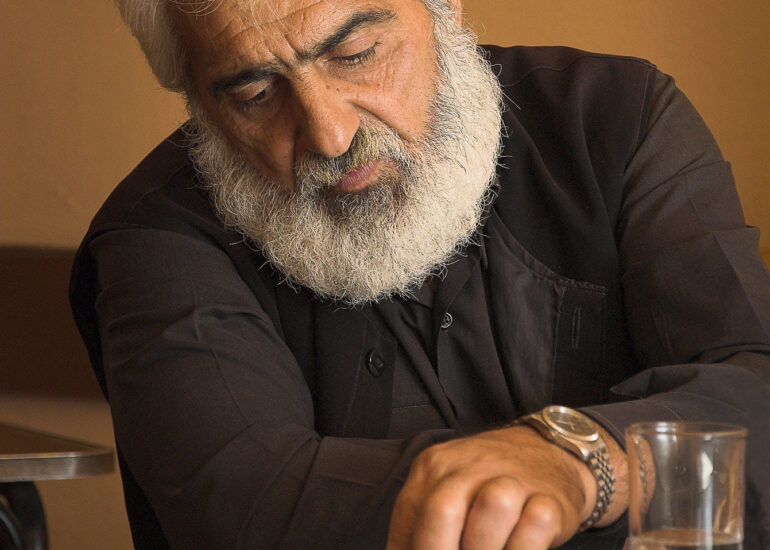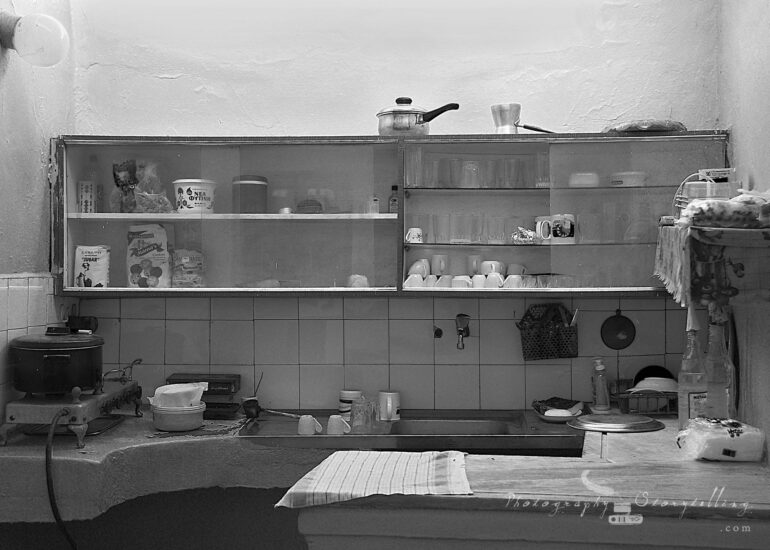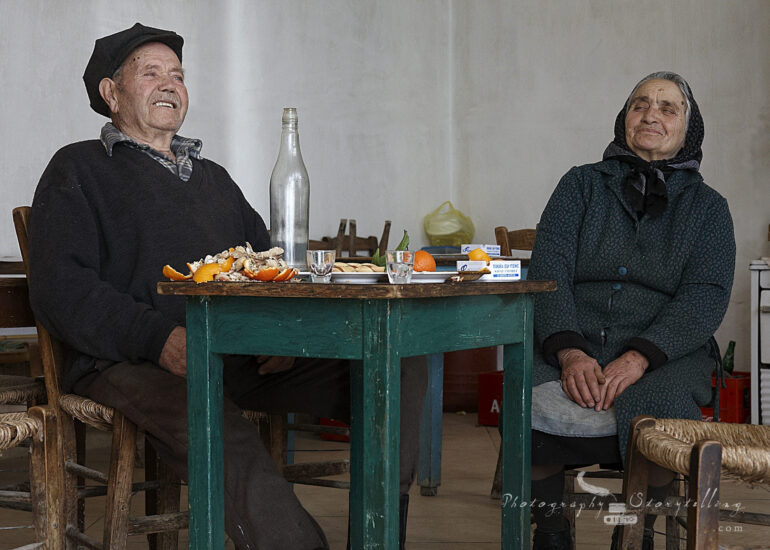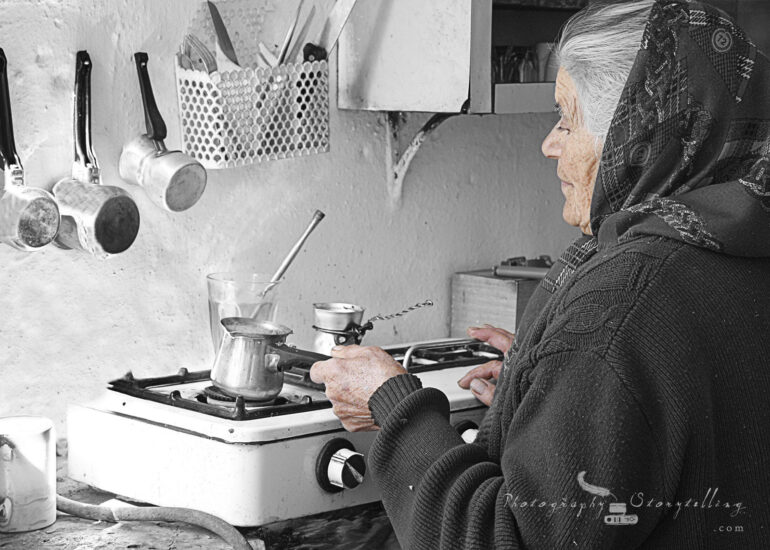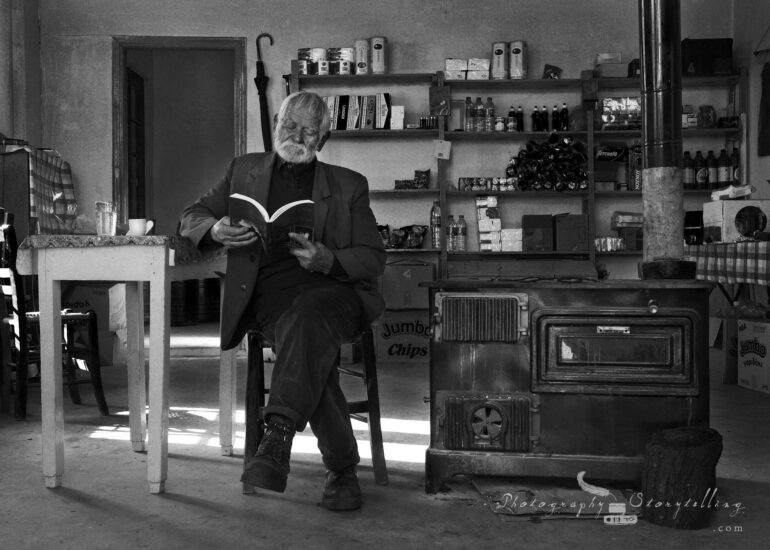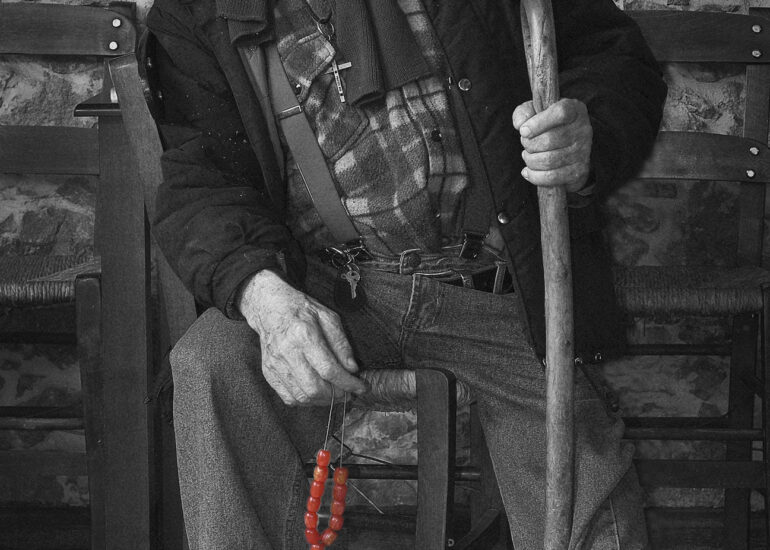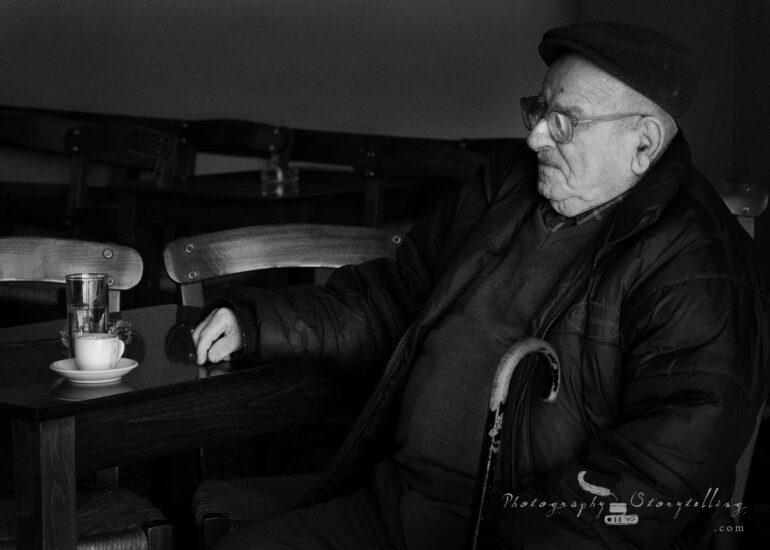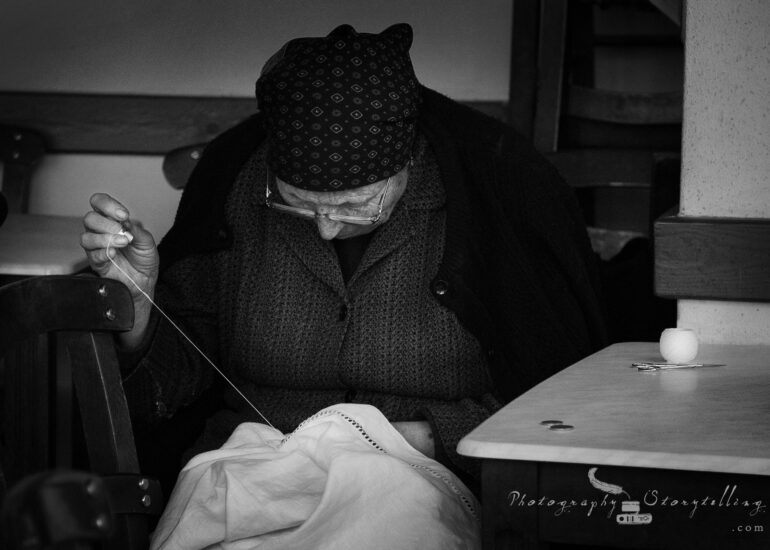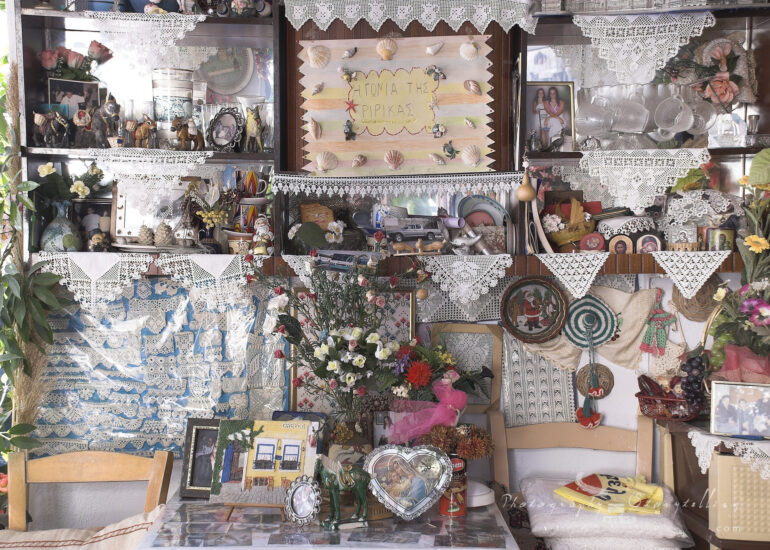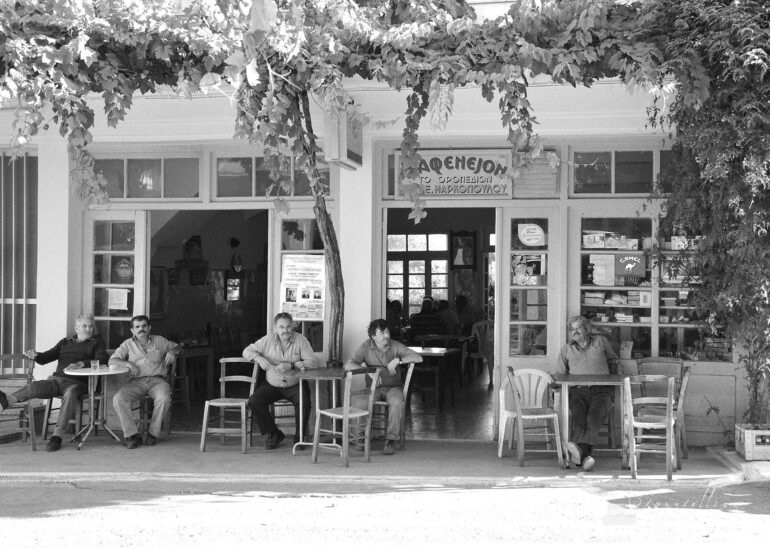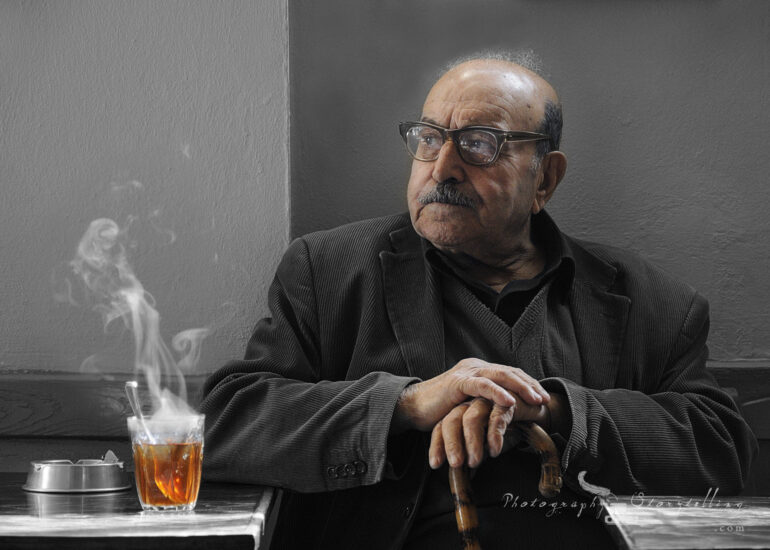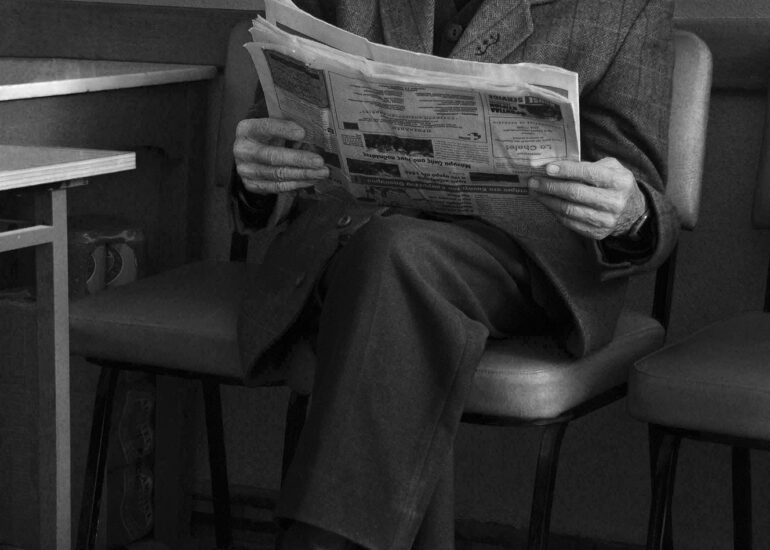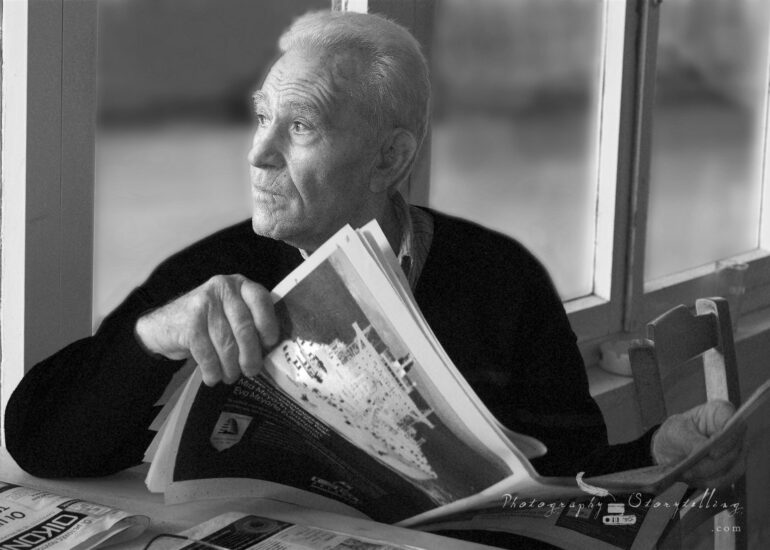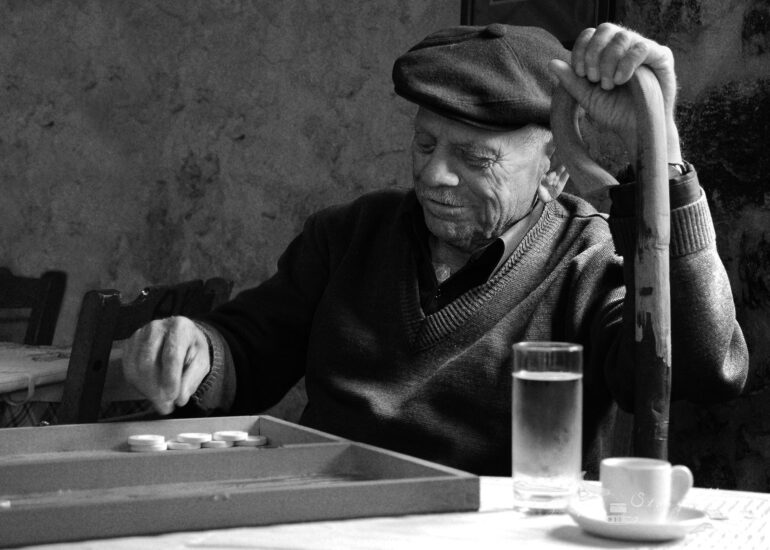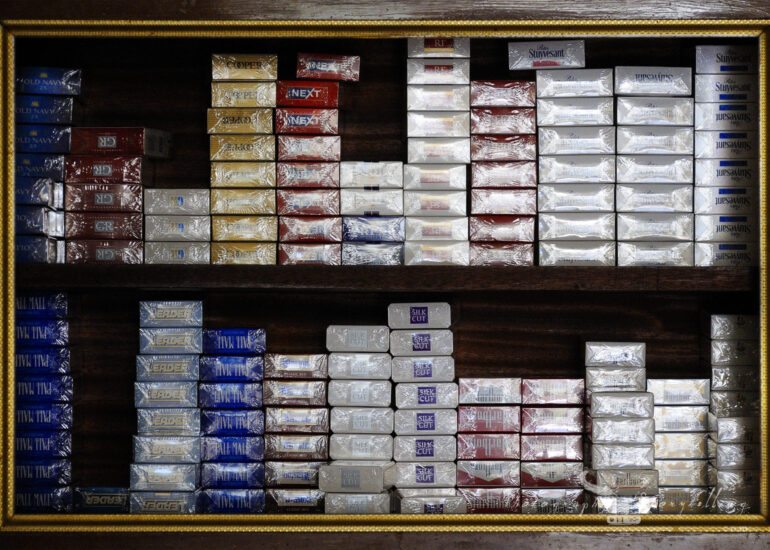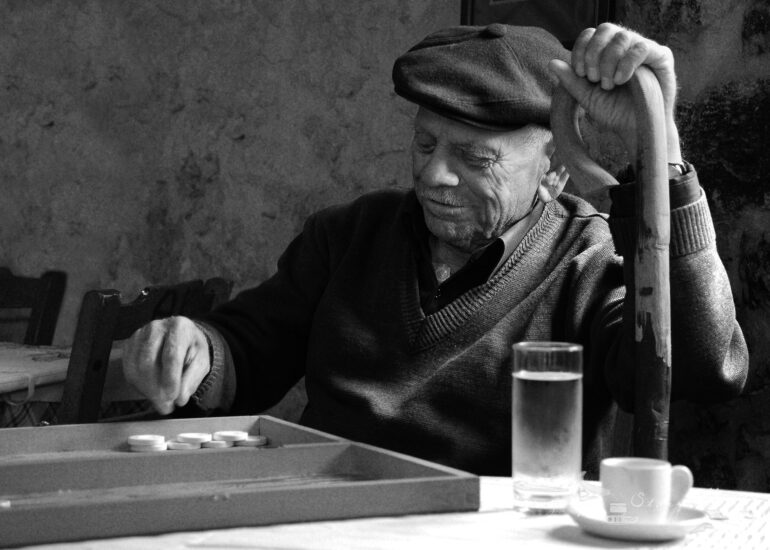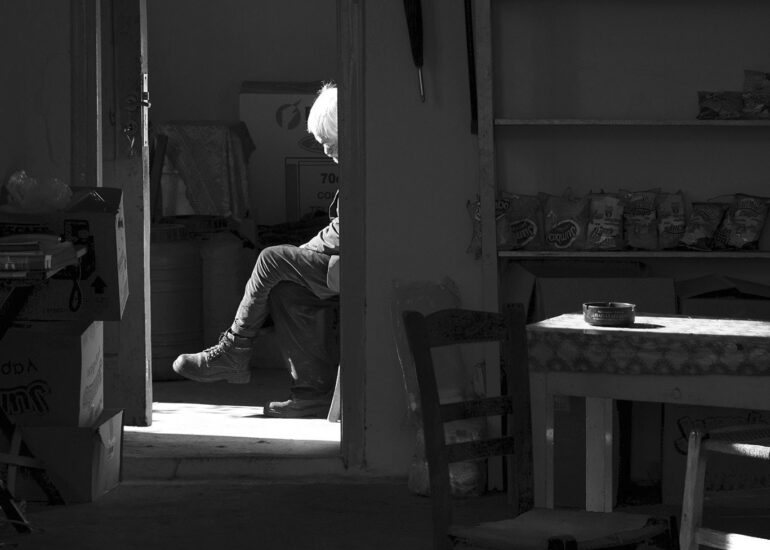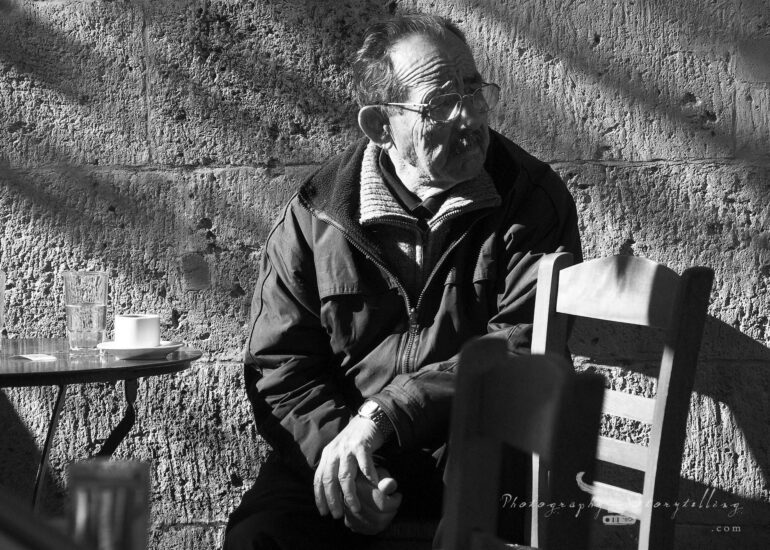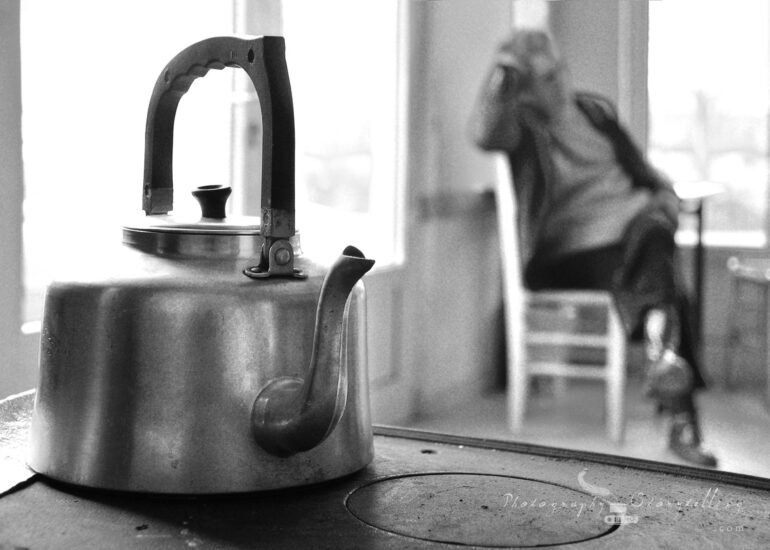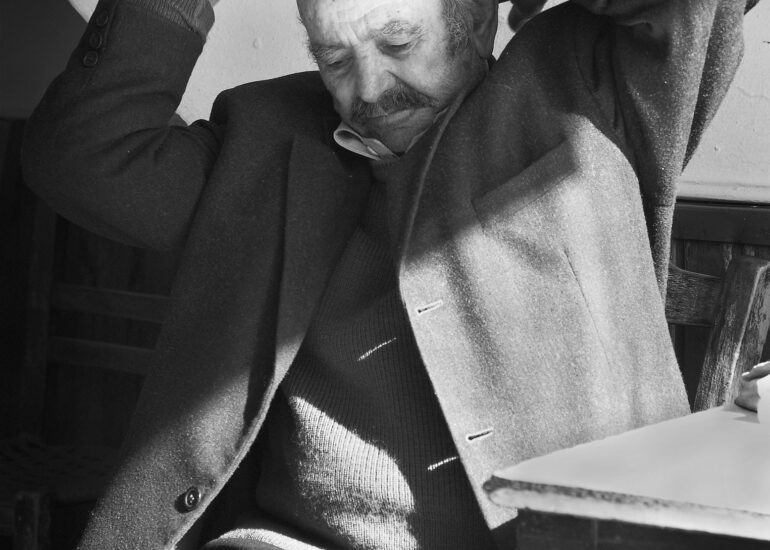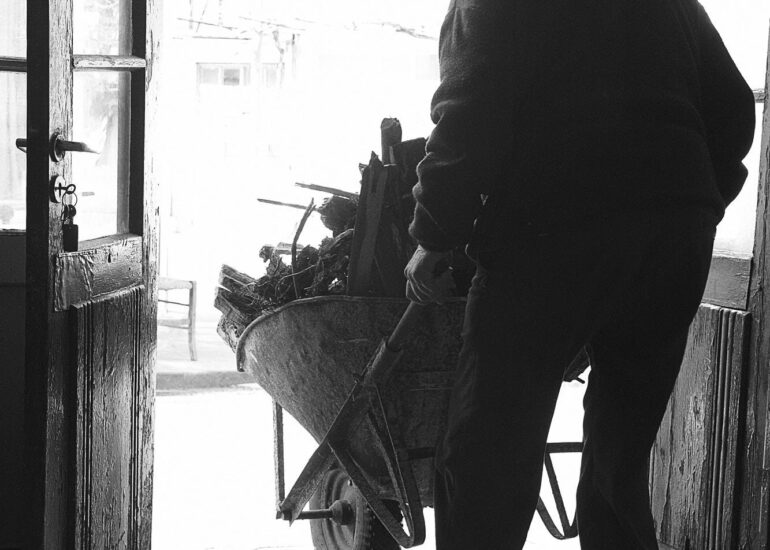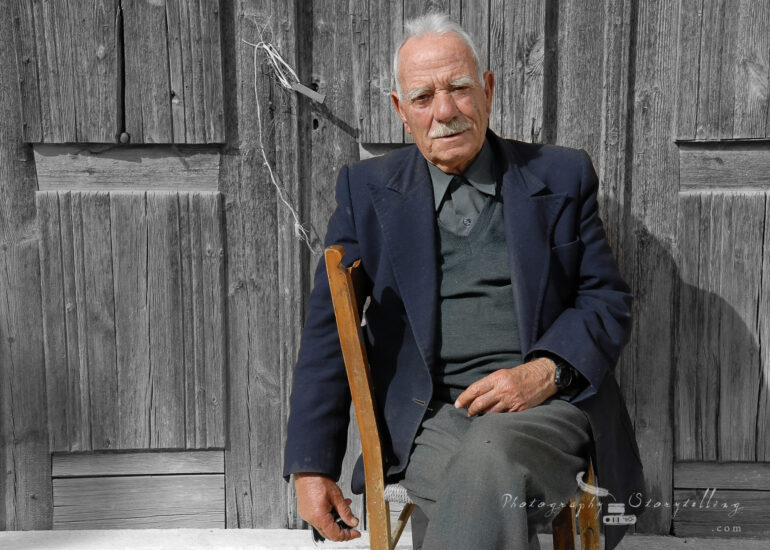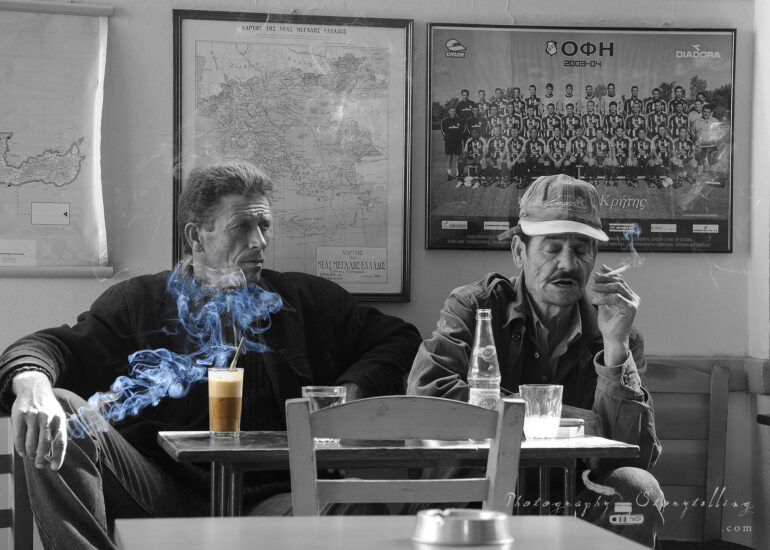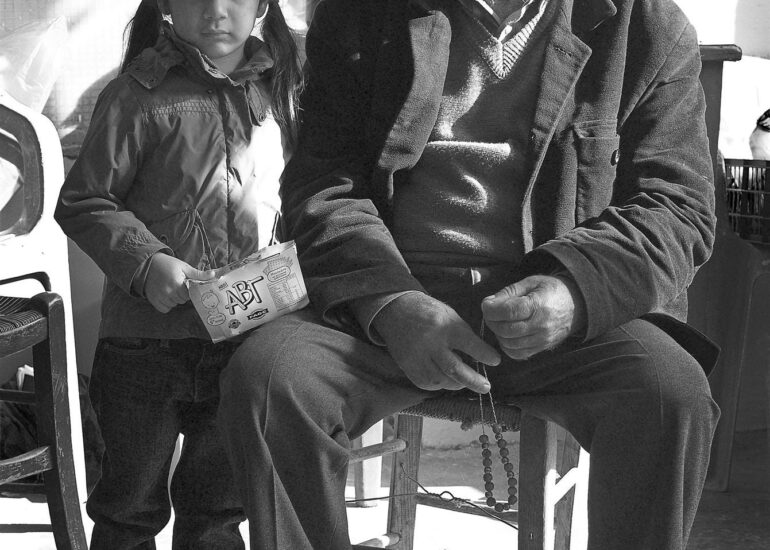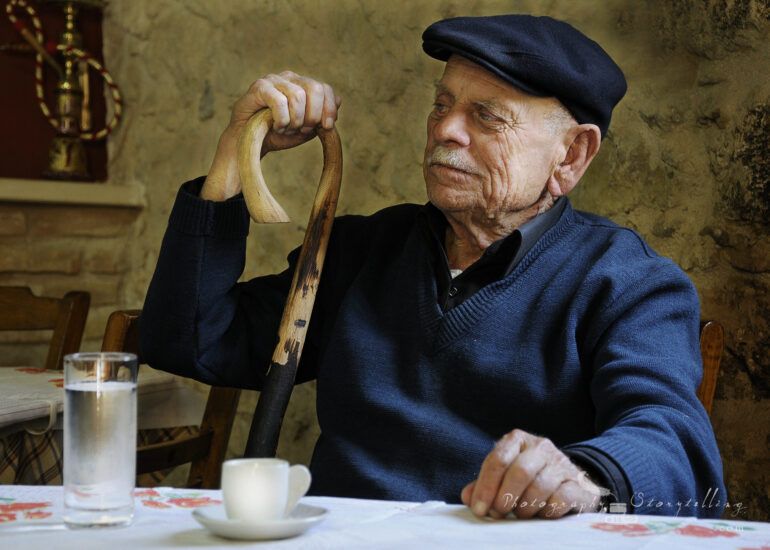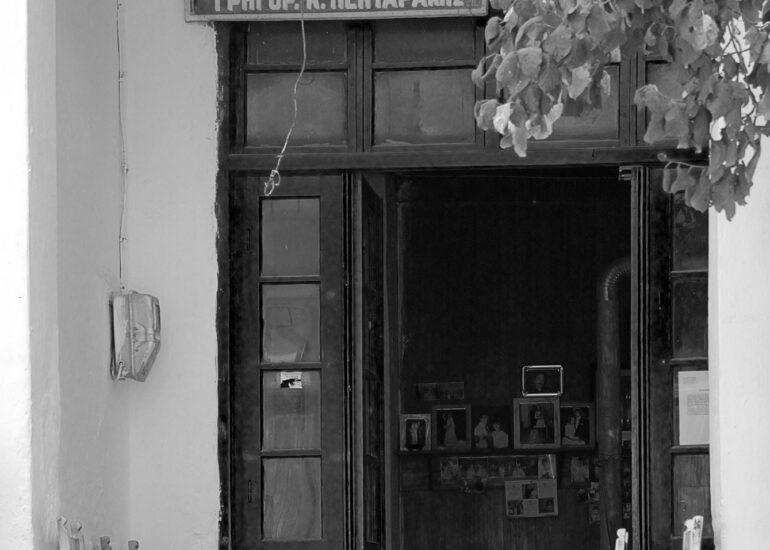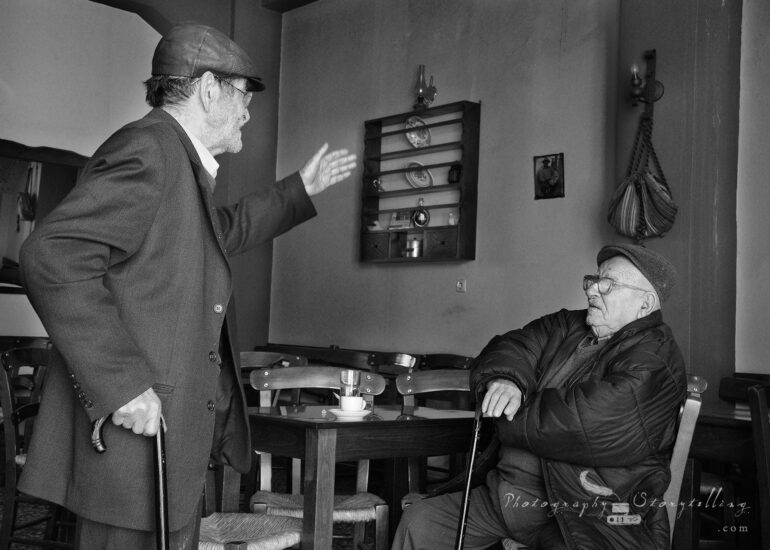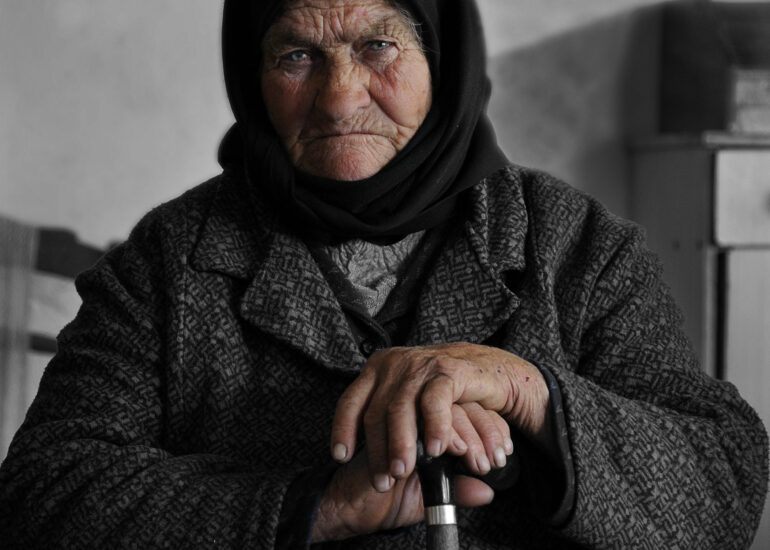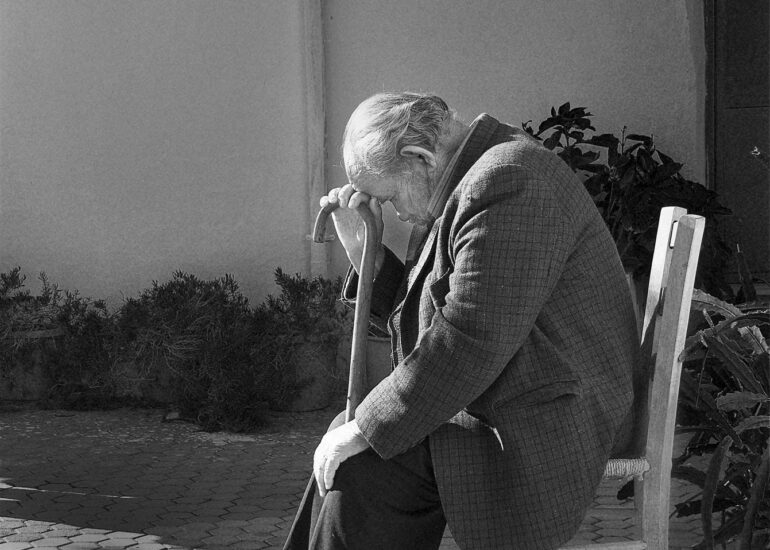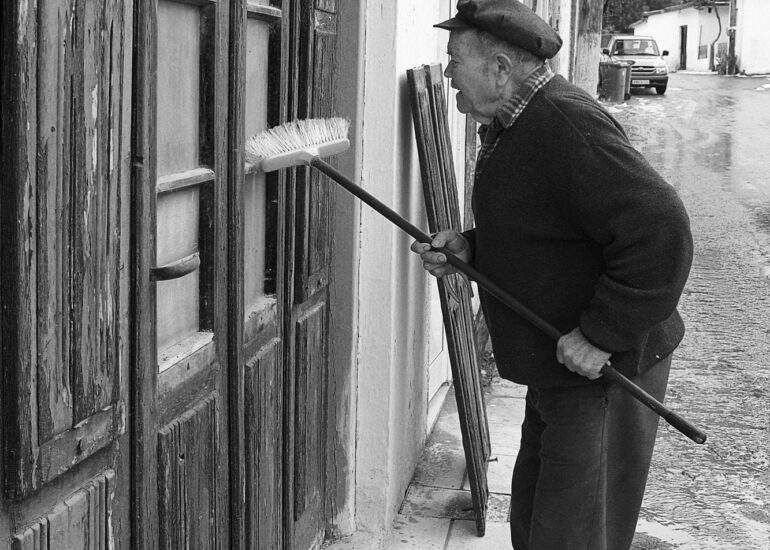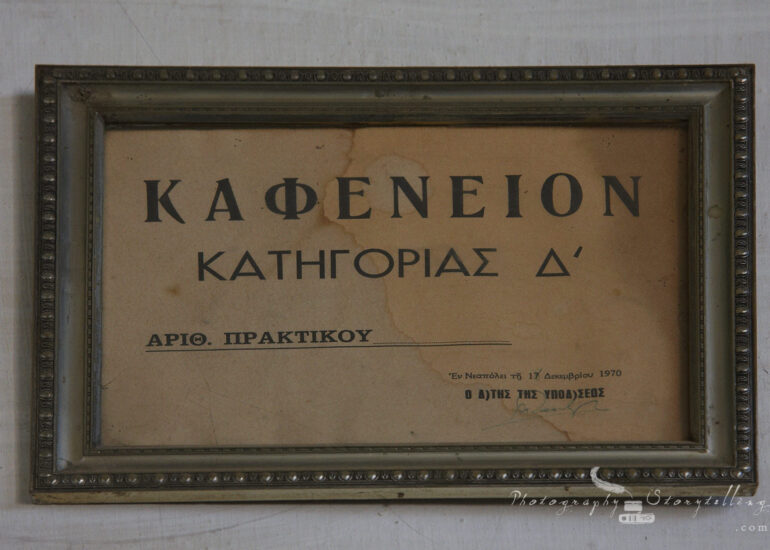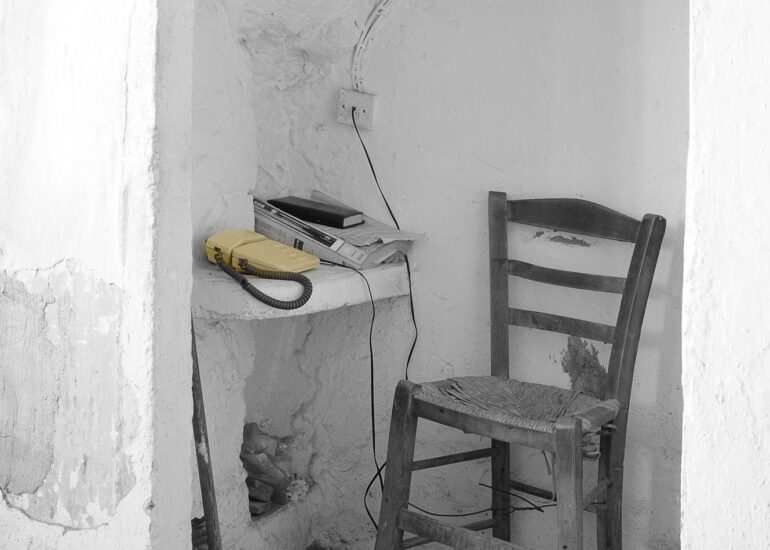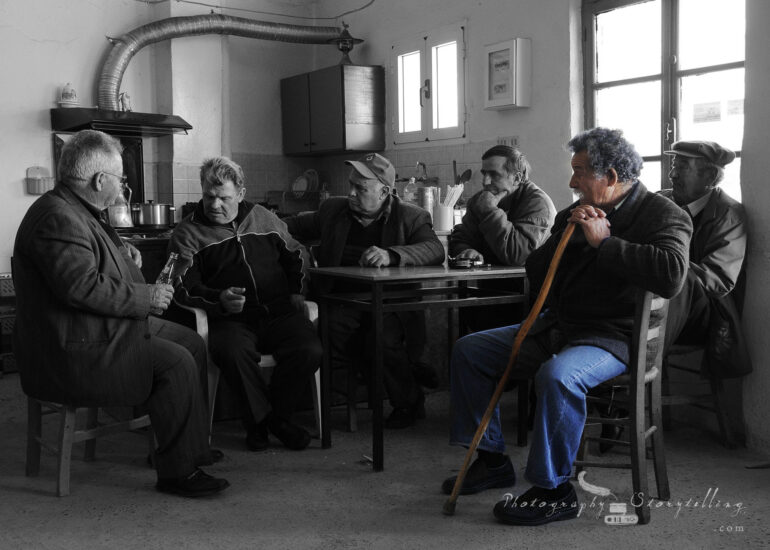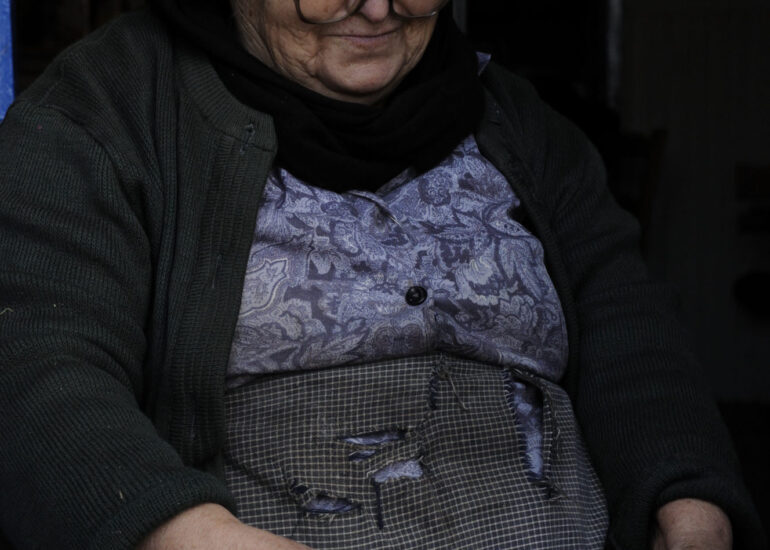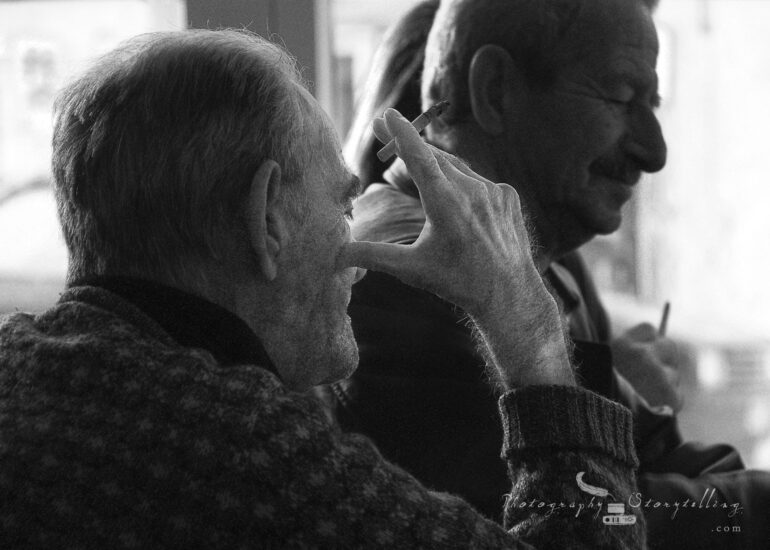Coffee Shops in Crete
Project
Coffee Shops in Crete
(2007-2009)
After a lot of thought, we selected the topic. The Cretan Coffee-shop would occupy us in a photographic sense and beyond, for the next year or two. As this study would evolve, I would discover more and more elements, which helped approach and understand the topic more holistically.
One of the main aims for this project was to document traditional Cretan coffee-shops with more than one function. Many, in the older days, apart from their coffee-shop identity, were groceries, butcher shops, shoe repair shops, mini-markets, barber shops and cinemas, among others.
This undertaking was an adventure. It gave the opportunity to visit new places, converse with interesting characters and learn of the days of old. The majority of these people have gone through difficulties in life, such as wars and extreme poverty, which led them to toughen up; something that has strengthened their soul, visible through their unique humbleness. It is said, that each person, to some extent or other, has their life story “imprinted” onto their face. This is another element to document via these images, while at the same time finding the people in this journey, interesting physiognomies.
Being the recipient of a Cretan hospitality that is slowly dying out, was difficult to digest. However, it feels lucky to still witness moments, such as, while, opening the door of a coffee-shop, a voice would be heard, as if it was coming from nowhere, saying, “Treat ‘em!”. This kind of hospitality – which Crete is traditionally famous for – comes in contrast with the behavior of people in the contemporary era that are more and more distrustful. Although this treat was coming from poor people, it feels as if it was really coming from the richness of their heart. This uniqueness and simplicity of these people made one feel special; given that there was a sort of “invasion” of their personal space in order to document them.
By talking to various people during this project, one could hear many comments, in regards to the Cretan Coffee-shop. One elderly regular in a coffee-shop in a village called Agios Mironas (in the Heraklion Prefecture) said:
“When entering in, into this coffee shop, in the olden days, there was a wooden chair with an arm attached only to its right, which was reserved for the Kapetaneo(1) for him to drink his coffee. Along with the coffee (which by the way came without it being ordered) they also brought him a water pipe. The chairs in the coffee shop were smaller in size, in comparison to today’s. Many times the coffee was adulterated with chickpea or wheat flour, due to the high cost of the coffee. Also the space was lit by oil lamps – using oil produced by our olive trees – thus creating a unique atmosphere.”
Another characteristic of the people of Crete is that they express themselves with
“It is my right to love and like whomever I want,
And advice and suggestions, I want from no-one.”
“In this coffee shop, I welcome you,
And I treat you once and twice, without knowing you”
In most coffee-shops one feels an embracing warm environment, as they walk in. By taking a closer look, one can observe many happenings, like people being absorbed into playing backgammon, talking about politics, discussing social issues or sports, while others seem consumed by the sound of the worry beads. Of course there are groups that are amusing themselves via playing cards, as if it is the most important pastime of the day. Other regulars were taking out a comb and tidying up their hair or straightening their jackets, while seeing us entering with a camera at hand(3).
The coffee-shop is a portrait of human life itself, as in these spaces one encounters a plethora of characters that synthesize the totality of being, the eternal struggle of life. Each person sees their friend, or their relative and entrusts them, their sorrows as well as their happiness. One runs into people – that to the majority – they know from birth, hence care for them and are understanding towards them. Perhaps the coffee-shop works as a sort of group therapy, as in the company, one can externalize their problem and hope for a solution. In an attempt to convey the different types of personalities one can encounter, one could say that the philosopher, the pessimist, the home-maker, the busy worker, but also the lazy, the gossiper, as well as the joker, are all part of this small eco-system that is a coffee-shop. One can hear jokes, anecdotes, teases and old stories which represent a part of the local culture.
It was a noteworthy moment, when they removed the shutters and cleaned the windows, after overhearing me say “There is not enough light”. I was the recipient of such behavior many times, which leaves you no choice, but appreciate the filotimo(4) of such people. Old ladies also made their presence felt, as there are those who run such spaces, and at one time you see them serving coffee, washing glasses and cups, tidying up the space, and at another, one sees them with never-ending energy and patience continuing their embroidery. When experiencing this, one could not help but think the lyrics of a very famous song performed by Nikos Ksilouris, called Rave Ksilone, douleia na mi sou lipi(5) .
Each coffee-shop is unique, in a similar way that each photograph cannot be entirely the same, due to lighting differences, the general circumstances, people and their expressions as well as objects, among others.
Most of these coffee-shop owners are already close to getting retired and these spaces will seize to exist, due to the lack of interest from younger generations. It saddens me that the traditional coffee-shop, which has been part of the culture and landscape of Crete is fading away. I only recently got acquainted with it, by studying and documenting it. The majority of these coffee-shops had already lost their additional functions, as I barely caught them just as coffee-shops. Products of another time, serving multiple needs, which in today’s world are being met elsewhere, it begs the question, whether they have lost their value or not.
As I am going and I leave behind me the foggy windows from the cold, I keep the warmth of the Cretan coffee-shop as well as the filotimo of these people, hoping that they can continue to exist and embrace each one of us.
Finally, I would like to mention that during this project, I experienced beautiful moments, which were created with the best of intentions, humor and the full awareness that apart from the traditional and folk character of the traditional Cretan coffee-shop, there is also a deeper human side that acted as a connection with all the people I encountered and photographed.
I thank them all.Footnotes:
(1) – A sort of Captain or important leading figure in a village.
(2) – A sort of short rhyme/poem.
(3) – This reminded my of the times when having ones photograph made was considered to be something special.
(4) – A combination of the words, decency, self-respect, kindness and sincerity.

